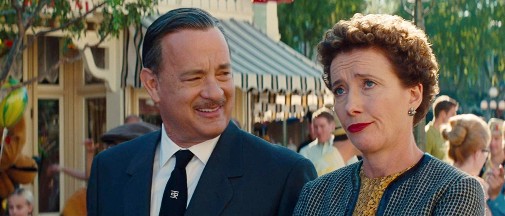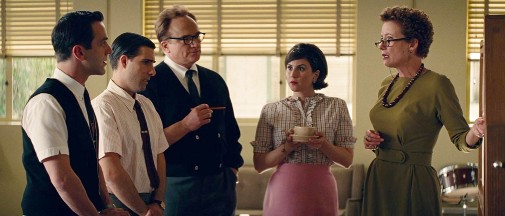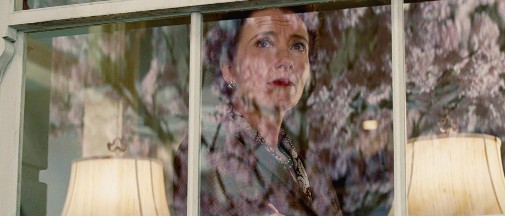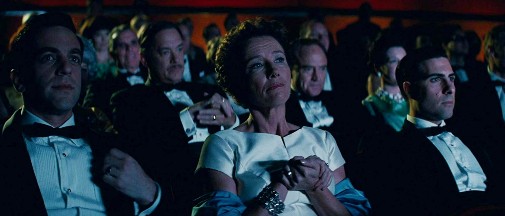
As we know, the precursors don't always matter. Many an actor was Oscar-nominated without a SAG, Golden Globe or BAFTA nod to recommend them. Of course, for every surprise inclusion, there's a shocking snub to contend with. There are those performers that seemed like near locks up until nomination morning. When they failed to stick the landing, predictors were surprised and fans thrown into paroxysms of outrage. These near misses can be precious jewels of acting that were unforgivably shortchanged, while, other times, we can count ourselves spared a nomination for mediocre work.
In 2013, Emma Thompson was nominated for the SAG, the Globes, the BAFTA, the Critics Choice Award and even won the National Board of Review prize for her performance as P.L. Travers in Saving Mr. Banks. The Academy, however, ignored her. Compared to some of the actual Oscar nominees, Thompson's work is, at the very least, an impressive achievement and deserving of recognition…

While Saving Mr. Banks is known to many as a work of nostalgic propaganda by the Walt Disney Company, the actual film tends to be more ambivalent than its fame suggests. It tells the story of how the author of Mary Poppins was bullied into surrendering her work for a movie adaptation by the House of Mouse, how she fought constantly with the creative team and locked horns with Walt Disney himself about the legacy of her magical nanny. The movie might ultimately be on Disney's side, taking for granted that 1964's Mary Poppins is a masterpiece, but Travers' side of the story isn't necessarily slighted. In fact, much of the script is made of flashbacks to the author's childhood in Australia, showing the audience how the traumas of her young life informed the creation of her literary work.
There's an active attempt to do justice to Travers, even though the remembrances of youth are Saving Mr. Banks' worst aspect. Part of that comes from the fact they are utterly needless. Emma Thompson's performance as the embittered Travers tells us everything the flashbacks do with dramatic economy. She has the mastery and precision of a performer capable of spinning storytelling gold out of a meaningful pause or a change of posture. The role may not offer the actress many challenges, but she executes what's given to her with virtuosity. She modulates what could have been monotone and makes the role of a curmudgeon into a fun entertaining presence.

Emma Thompson even complicates the material. Her default expression is always a mask of superiority that seems to have been worn so often it became aa personal tick. This icy composure makes her into a line of rigidity in busy scenes full of fluttering motion as people try desperately to please her while still arguing their points. When she melts and lets herself be electrified by the looseness of the other performers, it's a joyful sight that transcends the saccharine sentiment the film is going for. Less generous viewers might say Thompson is too good for the film she's stuck in, but one can as easily conclude her performance elevates the production.
Travers' prickliness is never completely sanded off by Disney whimsy, not even when the movie jams a tearful happy ending in a real-life story devoid of such rosy epilogues. When crying at the majesty of Disney's Mary Poppins, Thompson's author doesn't lose her bite and there's always a punch of sourness and acidity to the sugary confection the filmmakers try to jam down the audiences' throats. This dynamic between script and performer, between intention and execution is the fertile terrain in which the flower of narrative ambivalence blooms. Emma Thompson makes Saving Mr. Banks into a much better film than what one may expect and she deserved an Oscar nomination for it.

If you were to nominate Thompson in 2013, which of the actual Best Actress nominees would you snub?